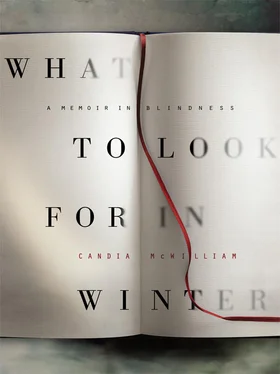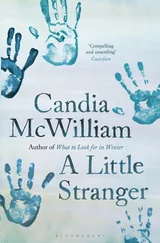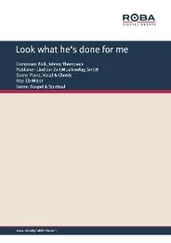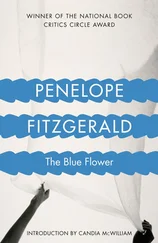Of course no alcoholic is being honest if he or she denies that there were those radiant moments of connection with what felt like the truth and a clean vision deep down into it. William James catches it in The Varieties of Religious Experience:
The next step into mystical states carries us into a realm that public opinion and ethical philosophy have long-since branded as pathological, though private practice and certain lyric strains of poetry seem still to bear witness to its ideality. I refer to the consciousness produced by intoxicants and anaesthetics, especially by alcohol. The sway of alcohol over mankind is unquestionably due to its power to stimulate the mystical faculties of human nature, usually crushed to earth by the cold facts and dry criticisms of the sober hour. Sobriety diminishes, discriminates, and says no; drunkenness expands, unites and says yes. It is, in fact, the great exciter of the yes faculty in man. It brings its votary from the chill periphery of things to the radiant core. It makes him for the moment one with truth. Not through mere perversity do men run after it. To the poor and the unlettered it stands in the place of symphony concerts and of literature; and it is part of the deeper mystery and tragedy of life that whiffs and gleams of something that we immediately recognise as excellent should be vouchsafed to so many of us only in the fleeting earlier phases of what, in its totality, is so degrading a poisoning.
When I was about thirty-two I went on a book programme with Allan Massie and P.D. James in Glasgow; it was for telly, and I’m scared stiff of that. Each was asked to recommend a favourite book. I had just finished reading The Drinker by Hans Fallada. If I had obeyed it, I should not have had to live it to its dregs. It is the stony truth about drink for those who have alcoholism as I have it. It takes genius to write of altered states and how they feel, so that the sober reader may enter the state he has very probably never known. Are such passages ever written by non-alcoholics? One thinks of the writers of such sustained and convincing accounts as The Lost Weekend or Under the Volcano.
I wake up quite often in the night in white dread. Drunks are prone to what are called ‘drinking dreams’. One of my worst drinking dreams reproduces an evening at a private house in Smith Square at which I entertained Simon Sebag-Montefiore and John Stefanidis on Simon’s Anglicanism. He is, of course, a Jew. Neither of these men is crazy about fat mad enormous noisy women; they are used to the most groomed, elegant and pliant women the world may offer. The relief on waking to discover that at my bedside are no bottles of red wine, none of vodka, not a trail of sick, and no blood in the bed is great. I have as many gaucheries, madnesses and fugues as any other drunk. When I hear of some shit who has taken advantage of this looseness in my memory and suggested that we may have been intimate, I add it to my files. You will recall St Elizabeth who, when asked what she had in her basket by a superior who was growing weary of her good deeds, replied, ‘Only roses’, though in fact she was bearing bread rolls to distribute among the poor. So once, caught terribly short on Lexington Avenue, very late at night and unable to find the keys of my sweet old-fashioned hosts, I peed into my Accessorize evening bag. No trace at all in the morning; a miracle. The great thing I mind about having been drunk is the imprecision and boringness that descend and, should one sink further, the self-pity that is the worst of self, in the guise of a lament and in my case, at any rate, a keening for all the dead and all the living who will be dead.
Of course there were lovely funny things that felt like being fully alive, things like chatting with Jerry Hall, in her off the shoulder turquoise Chanel leather mini-dress and matching shoes, about our shared problems with long hair. I told her that, at her recommendation in Vogue , I’d put Hellmann’s Mayonnaise on mine when I was at boarding school and she ratified my suspicion that models are brilliant at teases when asked goofy questions by magazines.
A magazine carried a small intelligent piece on me in which I was described as a ‘party-goer’. It was almost then that I folded up on going to parties, folding myself ever smaller and smaller as with the impossible origami trick, until I was so infolded that I went out not at all, my character as apparently hard but actually layered and latent as a tree peony’s balled bud before it braves its own revelation. You can never prove that you don’t go out; it’s a self-defeater.
I suspect that there is a certain amount of old-school-tie snobbery about which place dried you out and which place is tougher than the other. I am certainly prone to it when I hear that softies at The Priory have televisions or rooms to themselves, or are allowed out for un supervised walks. That is, you could say I am thoroughly brainwashed and very easily institutionalised. Going to Clouds was more frightening than the first day at school, but with many similarities. If you break the smallest rule you are expelled; these rules seem arbitrary but are life-saving. If you hear of any substance being abused and do not shop the user, you are expelled. It goes against the grain. It goes, in fact, against all sorts of grains, both in soft privately educated people like me and in those who are taking the option of doing time at rehab rather than in Pentonville. There is something repellent, dishonourable, not to mention explicitly forbidden in the traditions of Narcotics and Alcoholics Anonymous, about telling ‘war stories’, as they are known, to civilians.
There is nowhere to hide. Those who find this most difficult are certainly the bulimics and anorexics, whose habit seems to have its teeth into them further even than methadone or alcohol. Heroin is jittery to come off; for about three days people sit around shaking, saying ‘I’m clucking’, which means ‘I’m doing cold turkey.’ Methadone is a dulling brute. Junkies pass a rumour that it was used in the Reich, and derives from the words ‘Method One’; I just don’t know, but it is a slow pig to get off for sure.
The drugs that tell you most sharply that you must have them the minute you’ve got out of the place that is protecting you from them appear to be methamphetamine sulphate and crack. Speedballs, once had, are never forgotten. Speedball bores are like orgasm bores. You can’t convey it unless you can.
You have to have got to the bitter end of your using if you want to recover. Only desperation has the energy required in order to stay clean and dry, as the spooky, infantile words have it.
What I never got used to was that people were expelled or ran away with terrific expedition, so that the cast of characters in rehab — normally around thirty — changed all the time. Very few people lasted the whole six weeks and any of us who did were told that only one of us would be alive in five years’ time from among the thirty or so.
I grew attached to a beautiful heroin addict called John who’d been a pimp and had found his sister self-garrotted when he was a small child. He said that on the outside he’d have rolled me in thirty seconds. He meant robbed, burgled, what have you. He was fascinated by what I ate, particularly salad and olives. He kept telling me that they’d be no good for me at all and what I needed was a Big Mac. He spoke of a Big Mac in terms of such descriptive brilliance that he might have been describing the Warwick Vase. One day I gave him a physalis fruit that my daughter had brought for me. Of course I didn’t tell him its proper name or he’d have said, ‘You’re having me on; you can’t call fruit after the pox.’ I told him it was called a golden berry, which it sort of is in a merchandising way. There was one room where we were encouraged to mix, write our diaries of events throughout the day and hold meetings. It was the old drawing room of Clouds House, a long chunkily elegant room with desks and wipeable furniture. It was a visiting Sunday, deep into my stay at Clouds. The vicar really was circulating; it was teatime. I gave John my delicious golden berry to try.
Читать дальше











